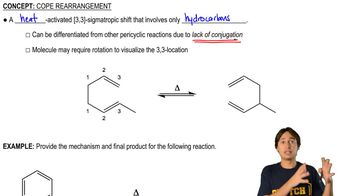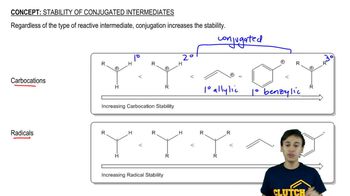Predict the products you would get when the following alkenes react under the following conditions: (i) H2SO4 , H2O
(a)

 Verified step by step guidance
Verified step by step guidance



 6:32m
6:32mMaster General properties of acid-catalyzed hydration. with a bite sized video explanation from Johnny
Start learning